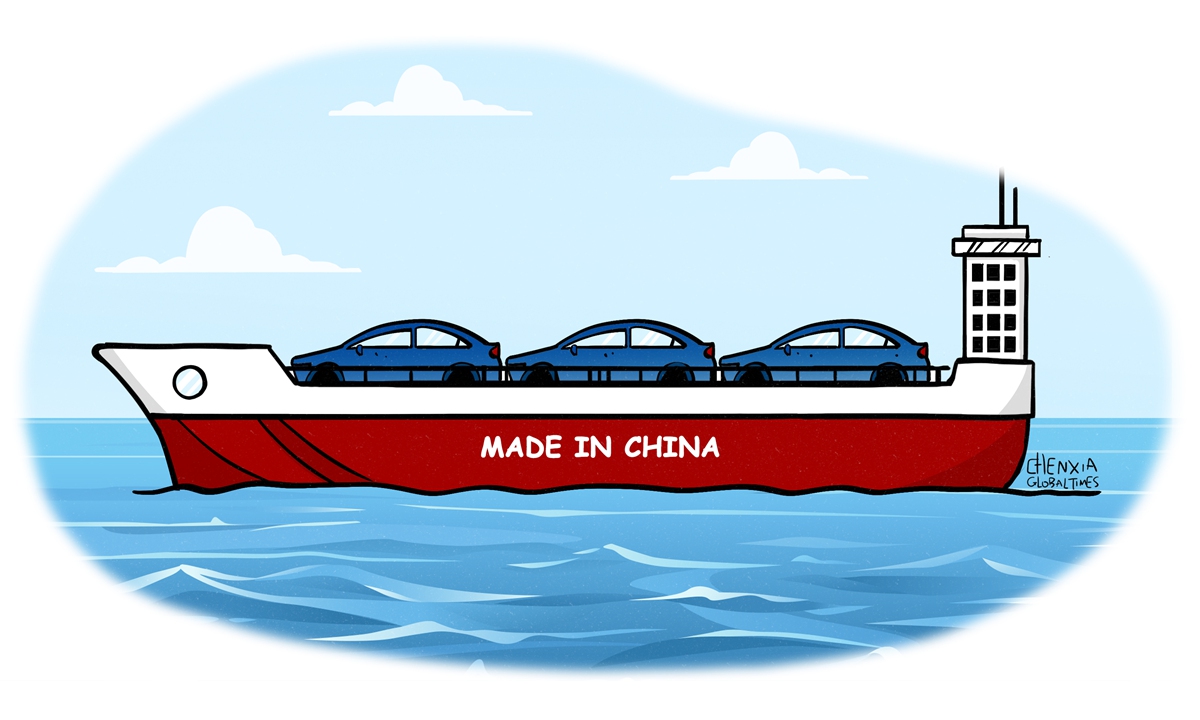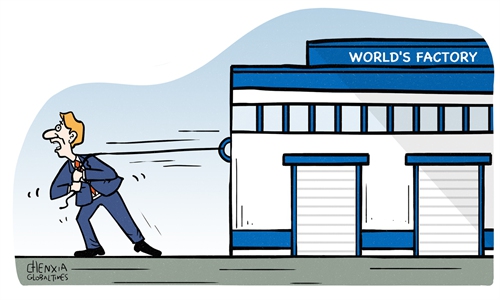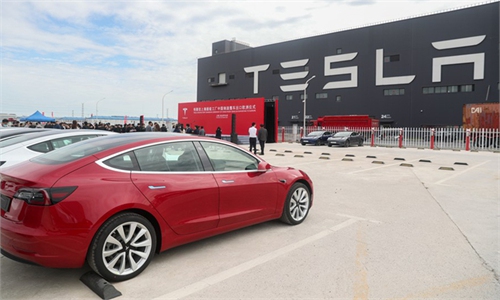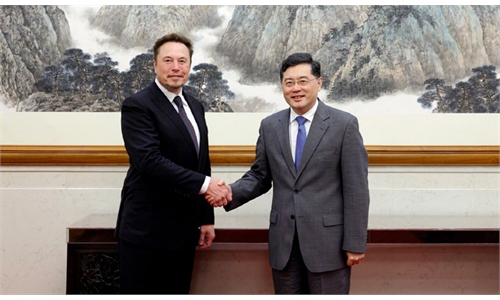
Illustration: Chen Xia/Global Times
Chinese State Councilor and Foreign Minister Qin Gang on Tuesday met with US electric vehicle (EV) maker Tesla CEO Elon Musk in Beijing. Qin noted that China will continue to unswervingly promote high-level opening-up, and is committed to creating a better business environment for companies from all over the world, including Tesla. China's development is an opportunity for the world. Musk said that Tesla is opposed to "decoupling" and "breakage of supply and industrial chains," and is willing to continue to expand its business in China and share China's development opportunities.This is Musk's first visit to China in three years. While it is not immediately clear the specific schedule of the billionaire's China visit, media reports suggested that Musk will visit Tesla's Shanghai factory and seek to deal with issues including intensified competition with Chinese EV manufacturers. Musk has changed his dismissive attitude toward Chinese EV giant BYD, calling it "highly competitive" now, according to media reports.
Another important background of Musk's visit to China is that Tesla has started shipping vehicles to North America market from its Shanghai factory recently. Tesla is listing China-made Model 3 and Model Y models for sale in Canada, the company's website showed on May 23, according to Reuters. The news has once again cast doubt on the effectiveness of US' efforts to re-shore manufacturing and push "decoupling" from China. Musk's clear opposition to "decoupling" shows foreign companies like Tesla have no interest in being made part of the US' harmful geopolitical games.
In the context of China's upgrading manufacturing industry which offers stronger supports for foreign companies like Tesla, Musk's opposition to "breakage of supply and industrial chains" and his continued commitment to the Chinese market will provide a demonstration effect on how global multinational companies cope with the headwinds brought about by the US "decoupling" and trade protectionism.
The success story of the speed and production capacity of Tesla's Shanghai factory in recent years has proved that resisting the political pressure of Washington and choosing China, the global manufacturing center, to build a factory is the most correct business decision for this American EV company that has been struggling to find a suitable manufacturing base for years. Despite COVID-19 epidemic disruptions, Tesla's Shanghai Gigafactory delivered 711,000 vehicles in 2022, a year-on-year increase of 48 percent, accounting for more than half of Tesla's global production last year.
Continuing to increase investment in the Chinese market and the Shanghai factory is the right choice for Musk and Tesla in line with business logic. China is not only Tesla's second largest market in the world, but the Shanghai factory is Tesla's largest production base globally. It still provides a stable and improving business environment for the company when the world economy is facing multiple uncertainties, creating vast opportunities for foreign companies like Tesla.
China's commitment to further opening-up and improving the business environment for foreign companies will not change even as the US is pushing for "decoupling." "China welcomes Mr. Musk and other leaders from the business community to develop a better understanding of China and promote mutually beneficial cooperation," Ministry of Foreign Affairs spokesperson Mao Ning said on Tuesday in Beijing.
It is the companies like Tesla that know better about economic trends than anti-China politicians in the US. As China is promoting the upgrade of its manufacturing sector, China's cost advantages and manufacturing supply chain advantages are continuing to drive more and more "Made in China" exports to markets across the world including North America. To artificially disrupt multinationals' normal business connections with China will inevitably hurt these companies' interests.
The economic "decoupling" or "de-risking" concocted by the US is against this normal economic trend. It is questionable whether the US can achieve its goals, and it remains to be seen what economic consequences will be brought about by going further on the wrong path. It is an indisputable fact that the EV manufacturing industry in the US has lagged behind China and Europe. Disrupting the normal economic cooperation between China and the US will not help the revitalization of the US EV industry.
The author is a reporter with the Global Times. bizopinion@globaltimes.com.cn



